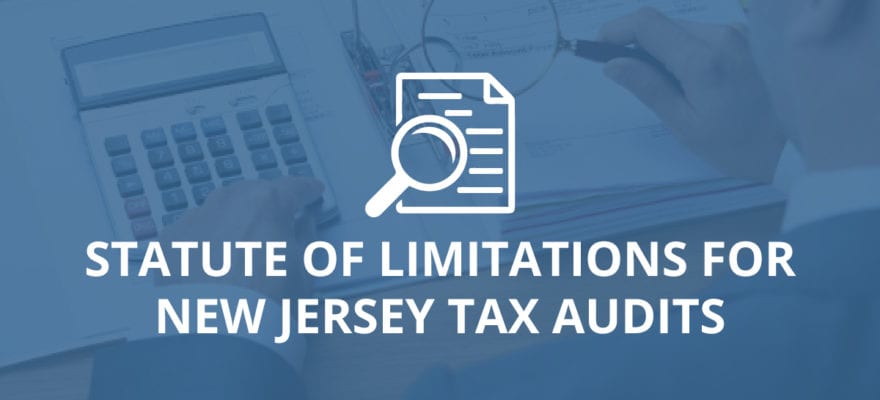The IRS isn’t the only government entity that audits your tax return. The New Jersey Division of Taxation could opt to audit your state return, and the process can be equally stressful and complicated.
The statute of limitations for a state tax audit is four years instead of the three years that the IRS typically observes (with the exception of gross income tax, which is also three years). However, the statute of limitations does not apply for any period during which you:
- Failed to file a tax return
- Attempted to evade tax liability by filing a fraudulent or false return
- Did not report federal changes
Why Are You Being Audited?
When you receive the audit notice in the mail, you will likely wonder what triggered it. New Jersey tax audits can be initiated by a variety of factors, such as:
- Unusual items on any of your returns, such as a higher than normal expense total in a particular category.
- Applying for a tax credit when the customer returns amount to a high percentage of your business revenue. (When customers make returns, often after the holiday season, many businesses will take the taxes paid and apply them as a credit in their next filing.)
- Applying for a higher than the normal refund. If you’ve filed for a $1,000 tax refund in the past, and you now request $10,000, the Division will probably want to take a closer look. If you filed an amended return, one that now claims a refund, it can also increase your chances of an audit.
- A disproportionate percentage of your sales is classified as tax-exempt, and your industry is not one that serves a lot of government clients or nonprofit organizations.
- The Division is paying closer attention to the industry that you operate in.
- A third party connected to you, such as a customer, supplier, or vendor, was audited and the information uncovered brought you to the attention of the Division.
- Someone else, such as a former employee, business partner, or spouse, reported that you filed inaccurate state returns.
- You were simply chosen at random.
What Kind of Documents Will You Have To Provide?
In most cases, you will be asked to submit the following documentation:
- Federal and state income tax returns
- State sales tax returns
- Federal and state payroll tax returns
- Bank statements
- The general ledger for the business
- Form 1099s
In addition to making sure that you’ve filed all of your tax returns, the auditor will compare your sales and income tax returns for any discrepancies in the gross receipts. If they need additional information, they will send you an Information Document Request. This typically happens for credits and deductions. For example, if you claimed a certain amount in office rental costs, the auditor may want to see a copy of your lease with the rent listed and payment confirmation such as canceled checks.
You probably won’t be interviewed by the auditor. If you have a New Jersey tax attorney or authorized representative, they can handle all correspondence and communications with the Division of Taxation on your behalf.
What Happens After The Audit?
If the changes arise from the audit, the auditor will contact you and your attorney to explain the adjustments, which could result in additional taxes due or an upcoming refund. They may also recommend changes in recordkeeping practices or explain how tax law applied to errors found.
You will be given the opportunity to review the audit results. If you agree with the findings, you pay any outstanding balance. If you can’t pay in full, you may request a New Jersey installment agreement that lets you pay off the tax liability over a specified period.
If you disagree with the audit results, you can submit additional information if necessary. The auditor and/or a supervisor will review this documentation and determine if any adjustments are necessary. If you still disagree after a decision is made, your attorney can help you appeal through the Division of Taxation’s Conference and Appeals Branch.
Speak with a New Jersey Tax Attorney
New Jersey tax audits can be just as challenging as their IRS counterparts. If you receive a notice from the Division, let Paladini Law help.
Attorney Brad Paladini understands how stressful an audit can be and will prepare appropriate documentation, answer any questions and show the state that you intend to comply with applicable tax laws. If necessary, he can negotiate an installment agreement to address an unexpected tax liability or present an appeal to the Conference and Appeals Branch. To schedule a confidential case review, please call 201-381-4472 or complete our online form.



